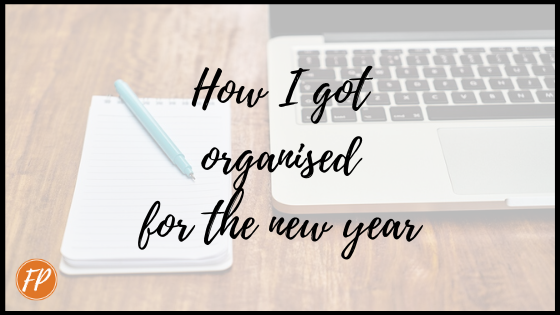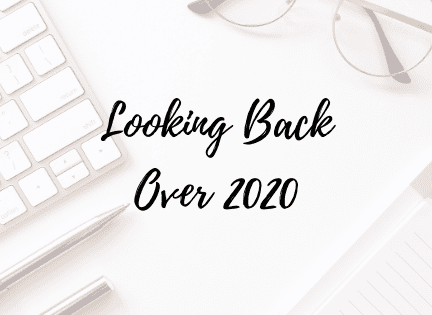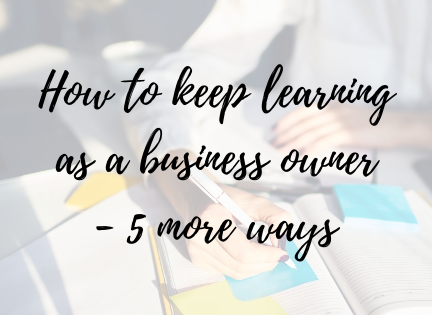Since as far back as the middle of November last year, my email inbox has been inundated with messages about how to get organised for 2020.
Don’t get me wrong. I’ve received all kinds of useful advice, but for me it all comes down to one thing.
What suits you best, specifically, you as an individual business person? Whether you’re a freelance sole trader or have a business that employs a number of staff, you are unique, with your own concoction of skills, experience, quirks and preferences.
So how do you organise yourself for the new year with your own personal needs and likes in mind?
To app or not to app?
Some people positively salivate over apps and software, whether on their computer, tablet or phone. They love to tap their lives into the latest online gadget and have access to their business world wherever they are.
At the other extreme, certain individuals may prefer to use paper (yes, paper – don’t look so shocked) diaries, calendars and notepads instead.
Most of us are somewhere in between those two on a slider that switches between the app salivators and the paper-lovers.
Would you rather organise yourself through apps, software, gadgets, paper diaries or a mixture of those? What suits you best?
How complicated is your life?
What does ‘organising your life’ mean to you?
Is it just about work? If so, does that mean organising the business you run, or do you work on an employed basis too? Do you have just one business, or several? If just one business, are there different strands to that business, for instance, do you work as both a copywriter and a social media marketer?
Maybe organising your life means that you have to take into account other activities, such as charity work or a hobby.
A lot of us have to factor in our personal life too:
- child care – both from a time, effort and expense point of view
- spending time with family
- hospital, doctor and dentist visits
- involvement with your child’s school, even if that’s just the yearly Christmas concert
- holidays and time-out
What do you need to include when organising the year ahead?
Who else do you have to involve?
This is a little like ‘how complicated is your life?’ but not entirely. One factor of organising your life will be your reliance on and responsibility towards other individuals.
Or to make it simple, who do you interact with on a regular basis? It could be:
- your business partner, or your employees
- your spouse, life partner and family members
- your customers
- your suppliers
- your bank manager, accountant or HMRC
Why will any of the above have an effect on the method you choose to organise yourself? Let me give you an example.
Years ago, I worked for one of the directors of a further education college. At that time there was a push from the powers that be to have all directors and managers move from a paper diary method to using a Blackberry phone that could be synced with the shared online diary back at the college.
My boss resisted. He liked his paper diary. Moreover, he didn’t like being tied down. If appointments were to be added to his diary, he wanted to know about it first. He didn’t want his time being scheduled away behind his back. So, every time he returned to his office, we would sit down with his paper diary and mine to make sure they matched.
The way he organised his work life, i.e. his paper diary, didn’t work because the other college directors and managers needed to know where he was and when he was available at all times, not just when he and his diary were back at college.
How does this all apply to me?
The title of this article is ‘how I got organised for 2020’ so it would be wrong of me not to explain how I applied all of this to my personal situation. All right, here we go.
To app or not to app?
You know I mentioned that slider between the two extremes of app-zealot and paper-devout? Well, I’m firmly in the middle area. I love my computer and my phone, with a fair helping of apps and software too, but I also love to write by hand, hence the pile of notepads waiting to be used in my office.
I’m comfortable using either method, so my form of organisation is a mixture of the two.
How complicated is my life?
2019 was an outstanding year for me, although not necessarily as a copywriter. While I kept my copywriting business quietly ticking over, I found a publisher for my novel.
Yay! Woohoo! I’ve got how much editing to do?
My novel was published at the beginning of October 2019. You can find more about that here.
What that means for 2020 is that I’ll be heavily involved in the ongoing marketing of that novel and working on the next novel in the series too.
I’ll also be carrying on with my copywriting business and all that brings with it, whether creating content to promote my business, writing client copy, or interacting with HMRC.
I have a family (husband and teens) to consider in how I organise my time too. In fact, I started out as a freelancer to give me the freedom to do exactly that.
Organising ‘me’ therefore means planning out how I will deal with all of the above.
Who else do I have to involve?
Well, I’ve already mentioned my family. My teens no longer need me as much but there’s still tasks I carry out for them, appointments to make, and reminders to keep track of.
My involvement with my publisher won’t come into play so much until they’ve had the first draft of my second novel and the editing process begins. At that point, there’ll be an agreed timetable to work to.
Interaction with copywriting clients generally takes place by email but again, there’ll be jointly drawn-up deadlines to meet.
Of course, there’s always good old HMRC to have that yearly chat with too.
So what do I do?
What works best for me is a combination of:
- yearly vision board
- yearly bullet journal
- calendar on my phone
- spreadsheets
People construct and use vision boards in all kinds of ways. For me, my vision board is a combination of text and images which set out my main goals for the year. I display it as the wallpaper on my computer because (a) I don’t have the wall space for a full-size printed out copy and (b) it’s constantly there so I can’t ignore or forget it.
My 2020 vision board has goals related to the success of my debut novel, how much I want to earn this year, my health and family targets too.
It’s a way to remind myself what I’m striving for.
The next item is my bullet journal. What’s a bullet journal? It’s an all-encompassing organisational tool that captures information such as your diary, your to-do-list, and your thoughts and notes, in a written format.
I’ve seen all kind of beautiful and creative versions out there, but mine is a very simple and straightforward version.
I have a contents page, a key for the bullet journal symbols (event, task, done, carried forward, etc), slots for each month to enter reminders and events, and room to write a list of everything I have to do in the current month. If I need to make notes on a project, be it business or personal, I can write that down in my bullet journal too.
Why do I use a physical bullet journal over something online?
- I can keep all my thoughts in one place, rather than having to go searching through scattered computer files or paperwork.
- It’s easy. Once I’ve set up the diary pages, index, key and so on, I’m away. There’s no need to log-in to a system. It’s a pad and a pen. What could be simpler?
- It’s cheap. I use an A4 Pukka pad, and a pen and ruler.
- It’s a physical book. Ok, I admit that this is completely personal to me, but I love to write by hand and use paper and pen. It helps to fix information in my memory and allows me to think things through.
- It’s private. I’m the only person who will ever see my bullet journal. I don’t have to worry about my computer being hacked. I’m never going to share it with a client or associate. It can be as messy as I like. It is truly ‘for my eyes only’.
- It’s personal. I design my bullet journal around what I need from it. I don’t worry about what other people do in theirs. I don’t shape it to anyone else’s design. This is my bullet journal. It suits me.
I record reminders, events and appointments on the calendar on my phone and then sync that with my computer. What this means is that I have access to my calendar wherever I am, so if I take a client call or my youngest teen’s school gets in touch, I know exactly when I’m available.
I use spreadsheets. I know, spreadsheets have a definite Marmite appeal: people love them or hate them. Personally, I find them an easy way to keep track of project timelines and progress, and my earnings and outgoings. They’re easy to read, easy to interact with and easy to forward on to a client, my publisher or even HMRC.
My way of organising myself and preparing for each new year suits me, but it won’t be right for everyone.
*
So there you have it – all the considerations that could help you decide how to organise your life as a business person in a way that suits you as an individual.
How did you get organised for 2020?



